Er Estatut d’Autonomia hè oficiau era lengua occitana en Catalonha. Se concrète en Art 6.5.: Era lengua occitana, nomentada aranés en Aran, ei era lengua pròpria d’aguest territòri e ei oficiau en Catalonha, cossent damb çò qu’establissen aguest Estatut e es leis de normalizacion lingüistica. Ua des responsabilitat qu’a d’assumir era institucion, ei a dí- der era Generalitat e eth Conselh Generau d’Aran, en procès de metuda era practica dera oficialitat dera lengua occitana, ei era sua referéncia lingüistica. Ua lengua a de besonh uns referents clars entà mostrar ua coeréncia normatiua.
S’era lengua ei ua, era occitana, ua a d’èster era nòrma de referéncia maugrat que pòden èster diuèrses es interpretacions e aplicacions.
Era aplicacion der Estatut hè de besonh era contínua relacion damb aguesta nòrma referent e damb era sua forma l’aplicacion. En cas der aranés aguesta nòrma occitana se concrète enes Nòrmes ortografiques der aranés que ja an mès de vint-e-cinc ans d’emplec sociau (escòla, administracion, …).
Es elements fonamentaus d’aguesta nòrma referent son longaments acceptats en tot eth territòri lingüistic, mès mos cau concretar e èster eth maxim de rigorosi, donques qu’era sua gestion non ei tostemp clara e evidenta. Sense aguest rigor es decisions non serien competentes e serioses. Ei plan per açò que, per manca d’ua autoritat normatiua de tot eth territòri lingüistic, era Secretaria de Politica Lingüistica s’a dotat der assessorament d’un Grop de Lingüistica Occitana (GLO) format per setze persones prestigioses en estudi dera lengua occitana, qu’amasse fòrça des sen- sibilitats existentes. Entre es compausants deth Grop i a tres membres der Institut d’Estudis Aranesi que garantissen eth respècte per aguesta varietat.
Mès, eth GLO non ei era autoritat, non cree nòrma, sonque l’ administre e assessore ara SPL ena sua aplicacion. Trabalhe ena perspectiva dera unitat lingüistica, e eth respècte dera varietat aranesa, sense hèr nòrma.
Ath torn der ahèr aranés-occitan s’a produsit un debat, en fòrça escadences rei- teratiu, sus er ensemblatge dera varietat aranesa e dera sua nòrma damb era varietat generau (hugim de denominacions coma estandard o referenciaus entà non entrar en competéncies pròpries dera autoritat lingüistica). Aguesta varietat generau a estat denominada d’ues autes formes per diuèrsi autors: occitan larg, occitan comun, neolanguedocian, occitan ortopedic, occitan referenciau,…
Eth trabalh que ven a contunhacion ei ua contribucion ad aguest debat. Es sòns autors son professionaus dera lengua, boni coneishedors dera varietat aranesa e dera varietat generau dera lengua occitana. Damb eri eth debat non s’acabe, ne s’inície, sonque se contunhe.


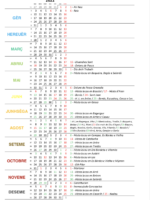

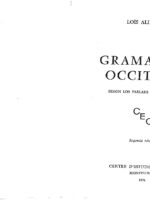
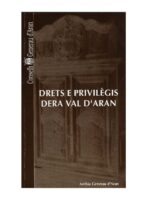
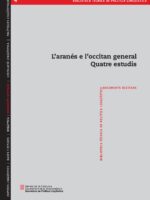
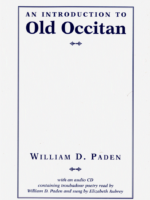


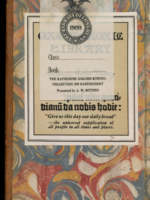
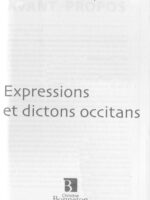

Be the first to review “Les troubadours. Une histoire poétique”
You must be logged in to post a review.